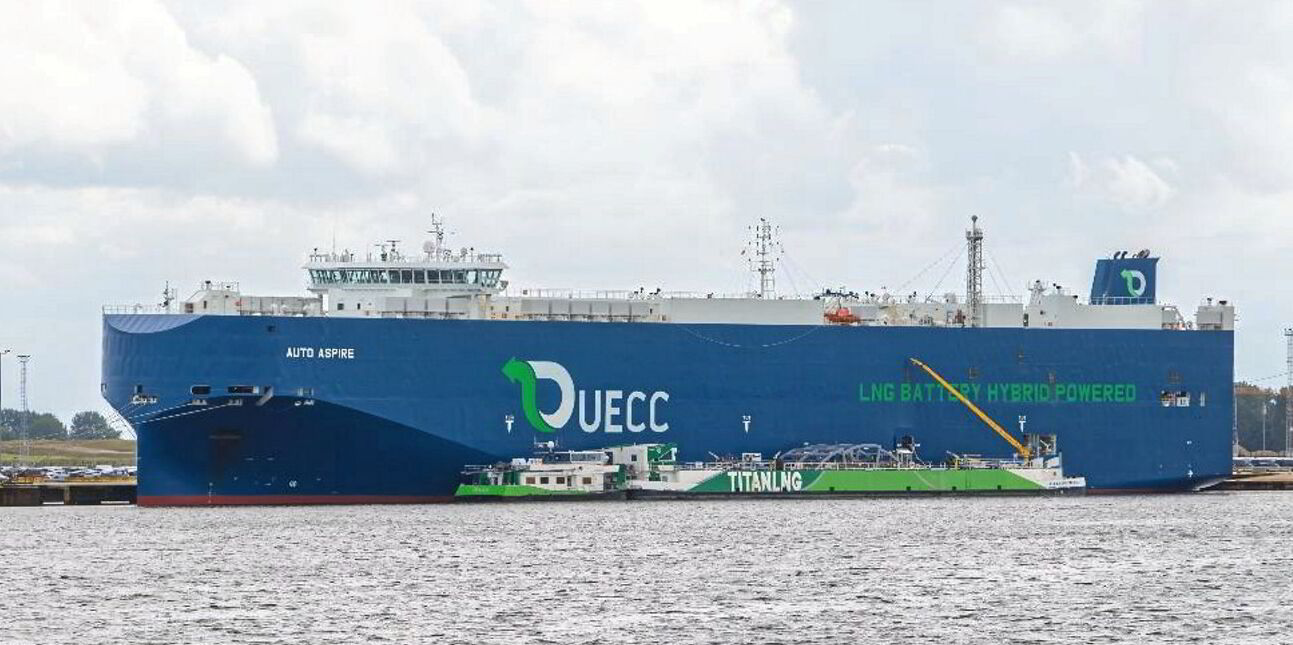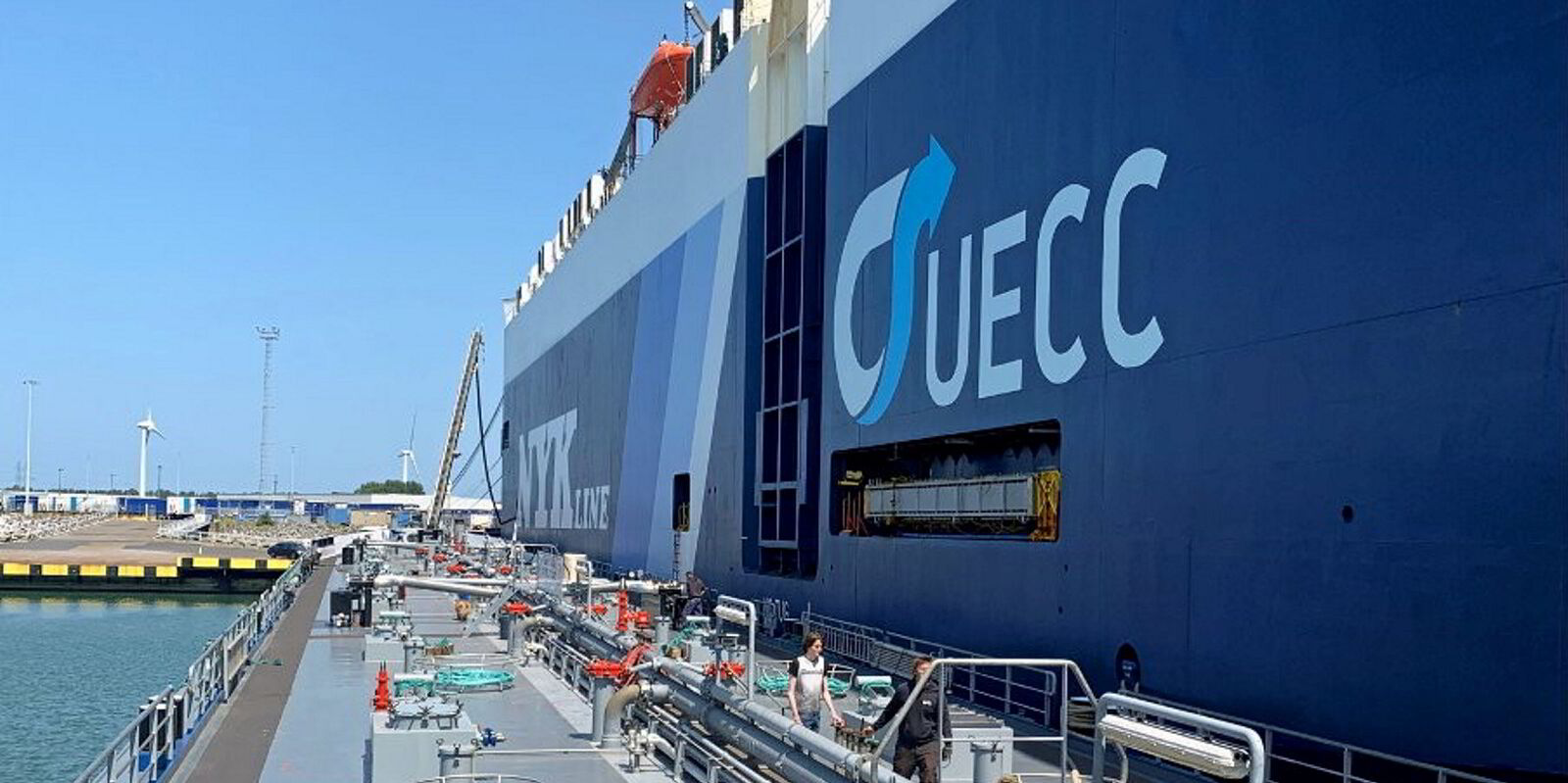Shortsea ro-ro owner-operator United European Car Carriers (UECC) and Dutch fuel supplier Titan have extended and increased their deal on liquefied biomethane (LBM) in what stacks up as a major commitment to the emerging fuel.
Under the new deal, the intention is that UECC will run its ships almost entirely on LBM for the rest of this year and throughout 2025.
The two companies said that since 1 July 2024, more than 95% of the fuel delivered to UECC’s pure car/ truck carriers (PCTCs) by Titan has been LBM, which has resulted in the avoidance of more than 30,000 tonnes of greenhouse gas emissions.
UECC recently invested in up to four new multi-fuel vessels for 2028 delivery.
According to Titan’s analysis, the quantity of LBM in 2025 that Titan and UECC are realistically targeting will avoid the emission of more than 75,000 tonnes of greenhouse gases — equivalent to the annual emissions of around 10,000 European Union citizens or 540m km driven in an average car.
Using LBM over oil-based fuels also virtually eliminates harmful emissions of black soot and other particulate matters, NOx and SOx, it said.
The shift to LBM will exceed UECC’s carbon intensity targets, which use the same metric as the industry’s forthcoming FuelEU Maritime regulation and offer the shipowner “over-compliance” across its overall fleet, the companies said,
As a result, UECC is exploring pooling and banking options. Energy & sustainability manager Daniel Gent said: “Through our CO2 registry, this agreement offers our customers the opportunity to significantly reduce their Scope 3 emissions, and we appreciate those that have already jumped at the offer.
“Toyota Motor Europe, Ford of Europe and two other major European vehicle manufacturers quickly signed up to Green Gas Month in July 2024, and following its success, every month will now essentially be Green Gas Month.”
This year, UECC launched its “Sail for Change” initiative, which offers carmakers the opportunity to move their vehicles on vessels powered with renewable fuels.
It said this has allowed the company to transition almost entirely from LNG to LBM, and to scale up quickly its use of the new fuel.
“With this expansion, we look forward to hearing from more customers who want to reduce their Scope 3 emissions and use sustainable shipping services today,” Gent added.
Titan commercial director of renewable fuels Caspar Gooren said UECC has “a strong and clear renewable fuels strategy” and has been “pivotal” in propelling the uptake of LBM.
“This agreement highlights that, just like LNG before it, LBM is quickly becoming a standardised product and gaining popularity as it is recognised as future fuel,” he said.
He added that the LBM delivery scale and consistency Titan can achieve is partly due to robust mass balancing processes and related liquefaction LNG terminal infrastructure in the region.
“It’s now time for the whole of Europe and the world to follow suit. Looking ahead, both Titan and UECC are aligned on the need to geographically expand biomethane supply and diversify waste feedstocks to ensure certified LBM is accessible to those in shipping that want and need it,” Gooren said.







